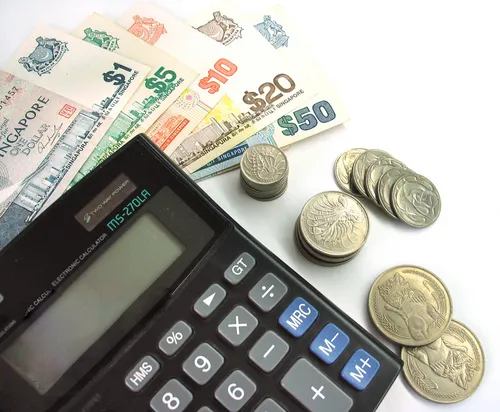
Chinese inflation out of control, surges 6.4% in June
This is a substantial acceleration from the reading of 5.5% in May, according to Royal Bank of Scotland.
According to RBSM, imports were unexpectedly weak, growing 19.3% yoy in June, compared to the market expectation of 25.3% and May reading of 28.4%.
Here’s more from RBSM:
| Crude oil imports accounted for more than half of the slowdown. Among non-oil imports, purchase of agricultural products in particular soybeans weakened substantially from the previous month and explained about 10% of the overall import slowdown. Demand for soybeans may have been depressed by recent measures to limit the rise of vegetable oil prices. On the back of the significant deceleration of imports and a more modest decline in export growth (to 17.9% yoy from 19.4% in May), trade balance rose to $ 22.3 bln, the highest monthly reading so far this year. Taking the quarter as a whole, Q2 trade balance improved over Q1, but remained substantially lower than the level before the crisis due to the weak recovery of exports. PPI inflation also picked up after the moderation in the past couple of months, driven by the rise of raw material prices. Adjusting for seasonal factors, CPI increased 0.7% sequentially -or an annualized rate of 8.7%. Food prices led the CPI increase, rising 14.4% yoy. Pork prices surged the most and registered a remarkable 57% yoy growth. Other main food groups such as aquatic products and eggs also saw faster price increases than in May. Non-food prices stabilized for the month - while it rose 2.7% yoy and made a small positive contribution to the rise of the headline CPI (Figure 4), sequentially it took a pause following the continued rise in recent months. |



![SBR 5 Lorem Ipsum News 2 [8 May]](https://cmg-qa.s3.ap-southeast-1.amazonaws.com/s3fs-public/styles/exclusive_featured_article/public/2025-05/a_hand_pointing_to_a_futuristic_technology_5b87c9d0e3_3.png.webp?itok=M3Hf-9XR)
![SBR 4 Lorem Ipsum [8 May Top Stories]](https://cmg-qa.s3.ap-southeast-1.amazonaws.com/s3fs-public/styles/exclusive_featured_article/public/2025-05/a_hand_pointing_to_a_futuristic_technology_5b87c9d0e3_2.png.webp?itok=2m5Wl0MX)


![Exclusive three SBR 12 Lorem Ipsum [8 May]](https://cmg-qa.s3.ap-southeast-1.amazonaws.com/s3fs-public/styles/exclusive_featured_article/public/2025-05/a_hand_pointing_to_a_futuristic_technology_5b87c9d0e3_11.png.webp?itok=8kn_UIfA)
![SBR 3 Lorem Ipsum [ Exclusive 2]](https://cmg-qa.s3.ap-southeast-1.amazonaws.com/s3fs-public/styles/exclusive_featured_article/public/2025-05/a_hand_pointing_to_a_futuristic_technology_5b87c9d0e3_1.png.webp?itok=YCyjLegJ)
![SBR 2 Lorem Ipsum [8 May]](https://cmg-qa.s3.ap-southeast-1.amazonaws.com/s3fs-public/styles/exclusive_featured_article/public/2025-05/a_hand_pointing_to_a_futuristic_technology_5b87c9d0e3_0.png.webp?itok=_cKD-29o)

![Video [Event News]](https://cmg-qa.s3.ap-southeast-1.amazonaws.com/s3fs-public/styles/event_news_featured_article/public/2025-05/screenshot-2025-05-08-at-4.58.53-pm_0.png.webp?itok=Kud35sMs)
![Event News SBR 9 Lorem Ipsum [8 may]](https://cmg-qa.s3.ap-southeast-1.amazonaws.com/s3fs-public/styles/event_news_thumbnail/public/2025-05/a_hand_pointing_to_a_futuristic_technology_5b87c9d0e3_8.png.webp?itok=DTh_dbYp)
![Event News SBR 9 Lorem Ipsum [8 May]](https://cmg-qa.s3.ap-southeast-1.amazonaws.com/s3fs-public/styles/event_news_thumbnail/public/2025-05/a_hand_pointing_to_a_futuristic_technology_5b87c9d0e3_7.png.webp?itok=vzDAzb6V)
![Event News SBR 8 Lorem Ipsum [8 May]](https://cmg-qa.s3.ap-southeast-1.amazonaws.com/s3fs-public/styles/event_news_thumbnail/public/2025-05/a_hand_pointing_to_a_futuristic_technology_5b87c9d0e3_6.png.webp?itok=jvHFc4P6)
![Video [Event News]](https://cmg-qa.s3.ap-southeast-1.amazonaws.com/s3fs-public/styles/video_thumbnail/public/2025-05/screenshot-2025-05-08-at-4.58.53-pm_0.png.webp?itok=yZnI0YBb)
![Video 1 SBR [8 May]](https://cmg-qa.s3.ap-southeast-1.amazonaws.com/s3fs-public/styles/video_thumbnail/public/2025-05/screenshot-2025-05-08-at-4.58.53-pm.png.webp?itok=9AAeRz_k)

 Advertise
Advertise

